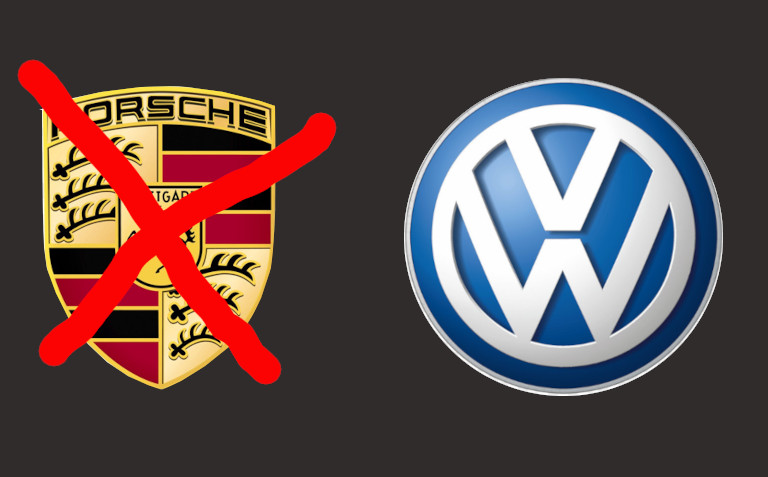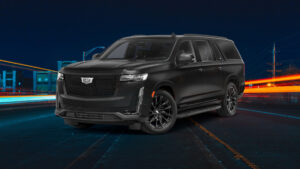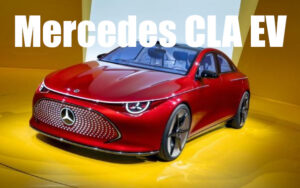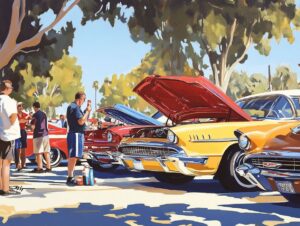
In a bid to implement cost-saving measures, Volkswagen has enforced a policy prohibiting its executives from selecting Porsche vehicles as their company cars, effective from the beginning of the year.
Short Summary:
- Volkswagen removes Porsche vehicles from the company car options for most executives.
- The new policy impacts around 200 VW managers and has met with legal challenges.
- Audi may become the next preferred choice of high-end company car for affected VW executives.
Volkswagen, the behemoth German automotive group, has rolled out a significant change to its fleet policies as it strives to trim operational costs. As of this year, executives at Volkswagen can no longer request luxury Porsche sports cars as their company vehicles. This adjustment comes as a part of Volkswagen’s broader cost-saving strategy designed to achieve substantial financial gains in the coming years.
According to an inside source who spoke to the German Press Agency (dpa), this sweeping policy shift impacts around 200 top-tier managers across the Volkswagen group. However, exceptions exist; only board members of Volkswagen Group and executives from Porsche, a subsidiary of Volkswagen, retain the privilege to drive these high-performance cars as their company vehicles. “Due to cost optimization… it is no longer possible to order a Porsche company car,” a spokesperson confirmed to the Bild newspaper, hinting at the brand’s dedication to bolstering efficiency and savings.
Volkswagen has been aggressively pursuing a massive efficiency and savings program that seeks to enhance earnings by a staggering €4 billion ($4.3 billion) this year, €7 billion in 2025, and €10 billion annually from 2026. The company, however, has not disclosed specific savings anticipated from halting Porsche car allocations for executives. It is evident that the significant cost associated with maintaining a fleet of Porsche vehicles contributed to this latest austerity measure.
“It’s a significant change in our policy, driven by the need for financial prudence and optimal resource utilization,” a Volkswagen spokesperson said. “While it’s a tough decision, it’s crucial for the company’s long-term financial health.”
This restructuring has not been warmly received by the affected executives. The Bild newspaper reports that lawsuits have already been filed against the newly imposed restrictions at the labor court in Braunschweig, located near the Volkswagen headquarters in Wolfsburg. This labor unrest underscores the dissatisfaction among employees confronted with the abrupt policy changes, indicating potential friction within the corporate environment.
The decision to forgo Porsches as company perks might be tied to maintaining corporate assets more responsibly. Sources within the Volkswagen Group describe scenarios in which luxury vehicles were returned in less than ideal conditions, likening their state to being towed behind a monstrous Autobahn truck. This cavalier treatment of opulent company property is precisely the behavior that Volkswagen aims to curb amid its billion-dollar savings goal.
In lieu of Porsche vehicles, Volkswagen is evaluating suitable alternatives for the impacted executives. Audi, another high-end brand under the VW umbrella, is expected to be the replacement option, allowing executives to maintain a semblance of the premium car experience. Audi’s extensive catalogue of premium vehicles stands as a testament to the quality and luxury still accessible within the Volkswagen Group, ensuring that affected managers have their choice of sophisticated and capable company cars.
“Affected managers have salaries substantial enough to purchase a Porsche independently if they wish,” remarked a Volkswagen board member.
While Porsche remains the crown jewel in VW’s portfolio—excluding super-luxury brands like Bugatti and Bentley—this policy shift brings in the prospect of readjusting corporate car allocations more holistically. Notably, high-caliber vehicles facilitate a firsthand understanding of premium user experience, which executives responsible for brand strategy at Porsche would certainly require.
The shake-up comes during a particularly disruptive period for Volkswagen’s supply chain, notably in the U.S. market. Recent reports by the Financial Times and Reuters revealed thousands of luxury vehicles, including Porsche, Audi, and Bentley models, detained at American ports due to a problematic Chinese-made electronic component. The part, a LAN transformer produced by Sichuan Jingweida Technology, was blacklisted by the Department of Homeland Security for alleged use of forced labor, placing these luxury brands under exacerbating scrutiny during peak sales seasons.
Such inventory bottlenecks have had severe implications. For instance, Audi’s U.S. sales have plummeted by 20 percent to 27,045 vehicles in early 2024, and Porsche faced a sales decline of 4.3 percent, registering 10,486 vehicles sold during the same period according to Motor Intelligence estimates. Dealers have expressed concern over these supply hiccups and the ensuing financial burdens. Robert DiStanislao, president of RDS Automotive Group, commented on the situation, pointing out the considerable drop in sales volume at his dealership.
The issue reached a point where U.S. lawmakers urged Volkswagen Group CEO Oliver Blume to reevaluate the company’s operations in Xinjiang, given the component’s origin from the controversial region. While dealerships eagerly anticipate the arrival of the delayed shipments, the extended waiting periods have not only dampened dealer profitability but have also affected customer relations adversely.
Volkswagen Group, known for its vast portfolio and competitive positioning, is not just limiting free Porsches for executives as a symbolic gesture. This decision marks a strategic pivot to strengthen financial oversight and efficient resource deployment. An auto industry analyst pointed out that such steps are vital for navigating the evolving landscape marked by stringent emissions regulations and electrification trends.
“This move by Volkswagen is a cautious yet forward-thinking approach to balancing luxury with accountability,” observed automotive analyst Rajat Gupta.
As Volkswagen Group tightens its belt and seeks to align with evolving market dynamics, the minimization of opulent company perks stands as a pragmatic measure. Whether this will significantly bolster the anticipated financial upturn remains a point of conjecture. Still, the stakes involve preserving brand integrity, nourishing a culture of respect for corporate assets, and sustaining long-term profitability in an increasingly competitive automotive sector.
Sources:
https://finance.yahoo.com/news/volkswagen-cuts-back-high-end-135801235.html
https://www.carscoops.com/2024/07/vw-takes-away-execs-porsche-company-cars-to-cut-costs/
https://www.autonews.com/sales/why-some-audi-porsche-vehicles-are-just-now-arriving-us-dealerships
https://www.nytimes.com/2010/08/29/business/29porsche.html
https://www.quora.com/Porsche-and-Volkswagen-who-bought-whom
The AutoPros.online team is dedicated to bringing you high quality automotive content for professionals and car enthusiasts, with topics like auto detailing, performance modifiations, repairs and automotive news.





